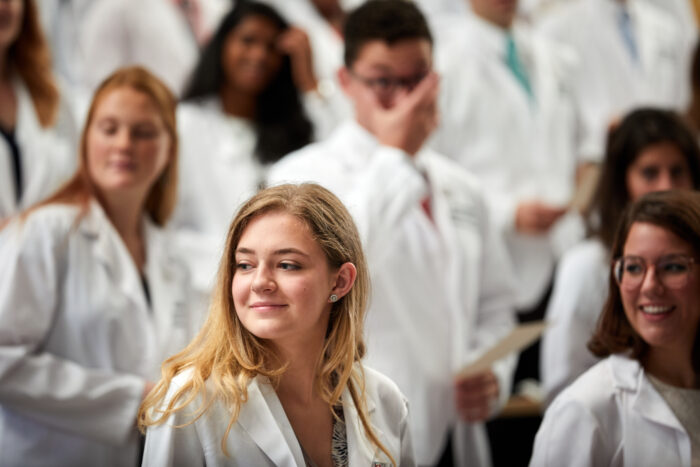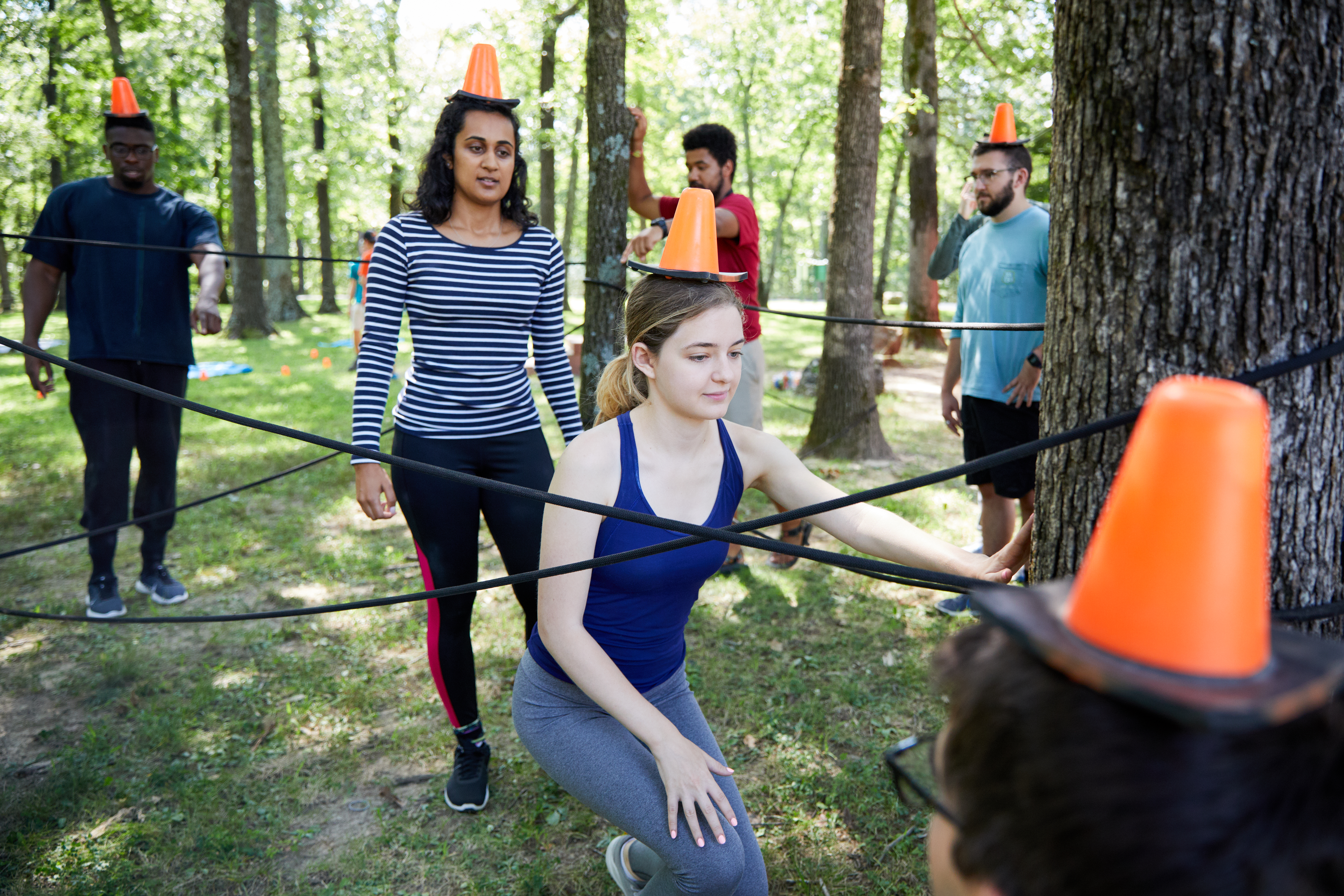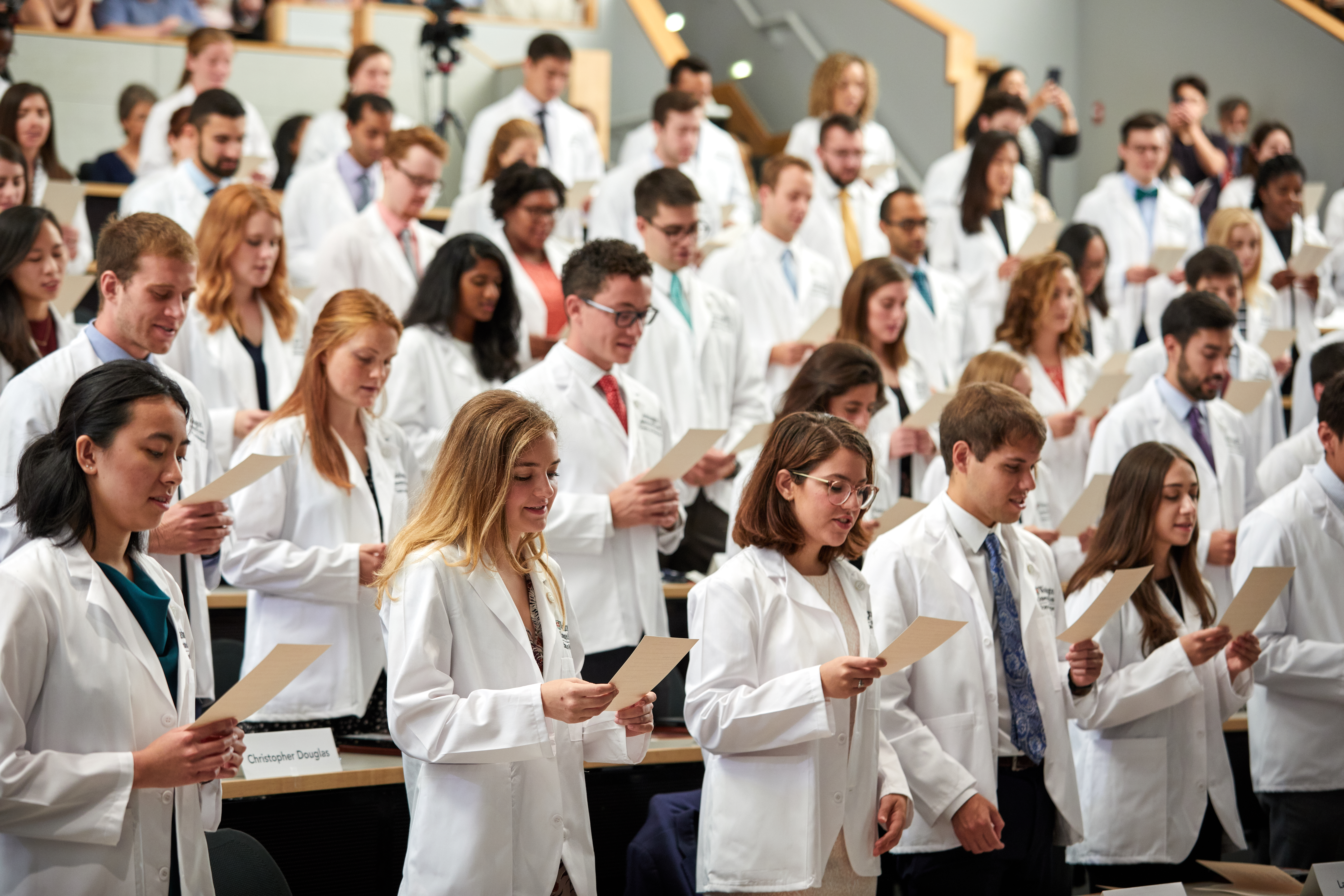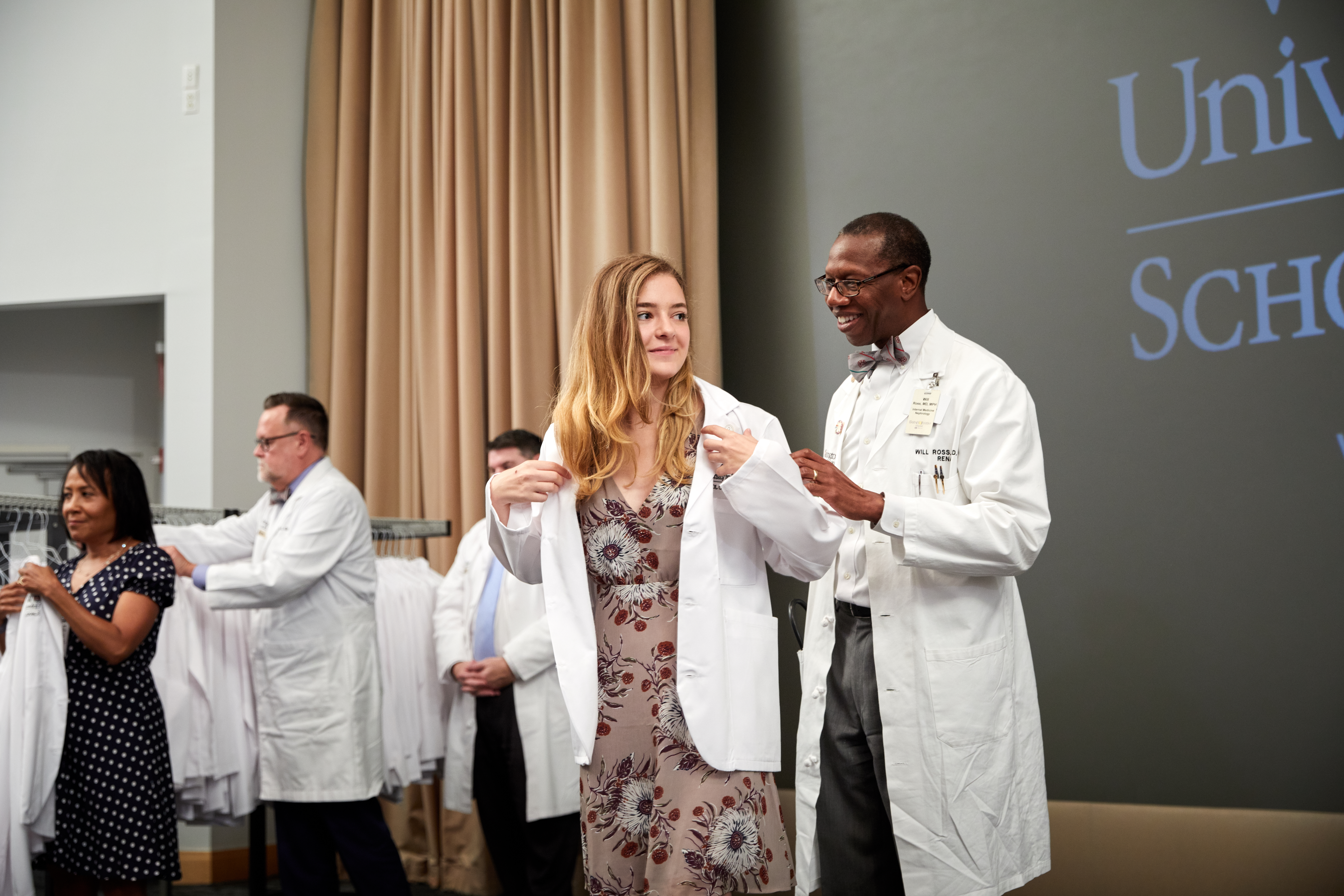2019 White Coat Ceremony: Acting on our values
First-year medical student Rachel Butler on her class's intro to the school and the power and positivity of the white coat
 Matt Miller
Matt MillerFirst-year medical student Rachel Butler and fellow members of the Washington University School of Medicine Class of 2023 attend the White Coat Ceremony on Aug. 16 at the Eric P. Newman Education Center.
“If we couldn’t tell people what our values are, would people know what they are from just our actions?”
That was the question Bob Hansman, an artist, community activist and associate professor of architecture at Washington University, asked me and my Class of 2023 classmates midway through our two-week orientation at Washington University School of Medicine. The question resonated with me. It spoke to what had driven me and many of my peers to pursue medical school: the desire to act on our values supportive of health equity, inclusion and justice rather than just talk about them.
Over those two weeks, we had many opportunities to explore our values and begin acquiring the tools to act upon them in meaningful ways as medical students and future physicians. Orientation began with time for us to get to know each other and the school. We went through a team-building course, including climbing an alpine tower, as our classmates cheered us on as we ran, crawled and rolled our way through various obstacles. We also did some less formal team-building, including exploring the City Museum, gaming all night at an arcade bar and eating our way through the Central West End.
 Matt Miller
Matt MillerGoing into the second week, I felt I had known my 99 classmates for far longer than seven days. This newfound closeness enabled us to talk openly with each other about complex and distressing topics as we learned about the challenges of public health in St. Louis.
Dr. Will Ross, associate dean for diversity and a professor of medicine, set the tone for the week-long WashU Medical Plunge (WUMP) by introducing us to the term “cultural humility” and the process of recognizing one’s own preexisting biases while respecting and learning about others’ backgrounds. Using this lens, we learned about the history of St. Louis and how it contributed to the social, racial and economic inequities that affect health and health care in and around the city. Bob Hansman took us on a tour of north St. Louis; Dr. Heidi Miller, an instructor in clinical medicine, discussed how we can combat health inequities; Dr. Laurie Punch, an associate professor of surgery, spoke to us about gun violence, along with a panel of survivors; and politicians from around the region answered questions about the public health system.
The flood of information, and the opportunities to ask questions of so many distinguished leaders in their fields, brought home for me the power that we now have as medical students to begin acting on our values. This newfound potential was symbolically conferred upon us at the culmination of orientation, the White Coat Ceremony.
 Matt Miller
Matt MillerThe physician’s white coat and all it can symbolize is less universally admired than it once was. As Dr. Tessa Madden, an associate professor of obstetrics & gynecology, told us at the ceremony: “There are concerns that the white coat may serve as a barrier, reinforcing the differences in power and authority between physicians and patients.”
After learning during WUMP about barriers already in place between so many people and access to health care, it felt odd to be donning yet another potential barrier. Yet, as Dr. Madden and many of the WUMP contributors emphasized, the white coat need not be a barrier. The white coat can serve as a meeting place rather than a divide, helping to change minds and build trust.
Just as Dr. Punch said she hoped that St. Louis’ Delmar Boulevard would act as a meeting place between communities rather than remain the “Delmar Divide,” as it is known, I hope to wear my white coat as a sign of invitation for unbiased connection rather than a shield against people and cultures unfamiliar to and with me.
 Matt Miller
Matt MillerUsing our white coats to act on our values looks somewhat different for each of us. It may be through advocacy, providing free health screenings, testifying before the state Legislature, publishing research on health inequities, or any number of other avenues that are open to us at the School of Medicine. However, how we treat our future patients will be a lifetime opportunity to act on our values.
As I begin my first year as a medical student, these past two weeks have given me a deeper understanding of what it means to truly care for patients. I hope this will inform my actions and the messages that my white coat sends to those I meet as I continue on the path to becoming a physician.






